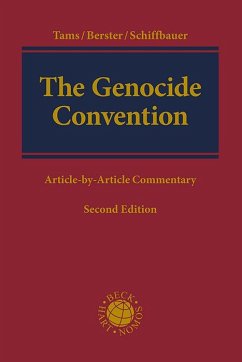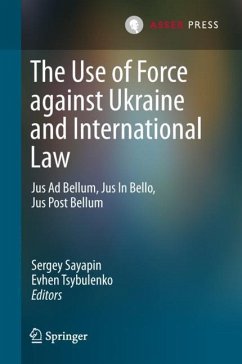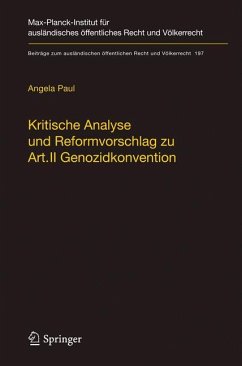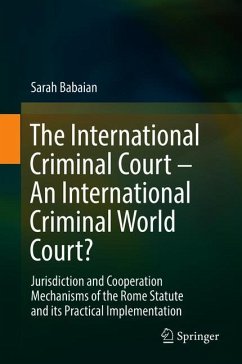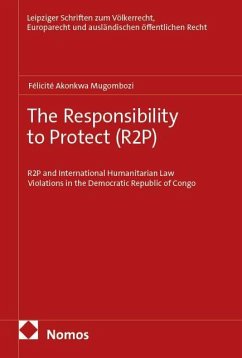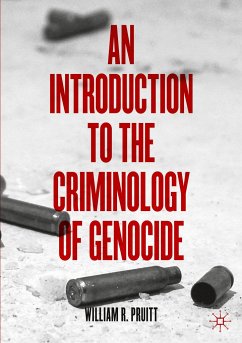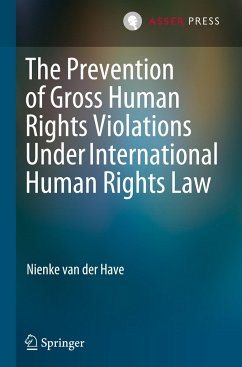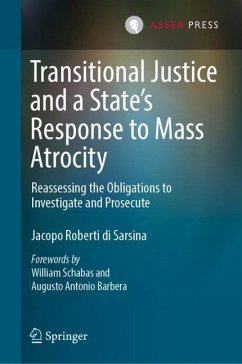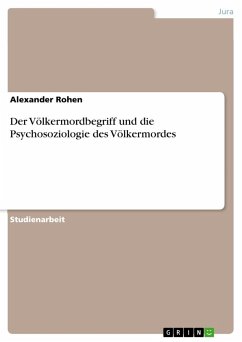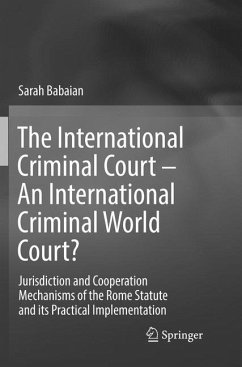
The 'Contextual Elements' of the Crime of Genocide

PAYBACK Punkte
49 °P sammeln!
This book examines the position of 'contextual elements' as a constitutive element of the legal definition of the crime of genocide, and determines the extent to which an individual génocidaire is required to act within a particular genocidal context.Unlike other books in the field of the study of the crime of genocide, this book captures the nuance and the complex issues of the debate by providing book-length comprehensive examination of the position of contextual elements in light of the evolution of genocide as a concept and the literal legal definition of the crime of genocide, which expr...
This book examines the position of 'contextual elements' as a constitutive element of the legal definition of the crime of genocide, and determines the extent to which an individual génocidaire is required to act within a particular genocidal context.
Unlike other books in the field of the study of the crime of genocide, this book captures the nuance and the complex issues of the debate by providing book-length comprehensive examination of the position of contextual elements in light of the evolution of genocide as a concept and the literal legal definition of the crime of genocide, which expressly characterized the crime with only the existence of an individualistic intentto destroy a group.
With scholars of international criminal law, students, researchers, practitioners in the field, and international criminal tribunals in mind, the author tackles many of the issues raised on the position of contextual elements in both academic literature and judicial decisions.
Nasour Koursami is the Director of Applied Research and a Lecturer at the National School of Administration in Chad. He studied law at Cardiff and Bristol Universities and holds a Ph.D. in International Law from the University of Edinburgh.
Unlike other books in the field of the study of the crime of genocide, this book captures the nuance and the complex issues of the debate by providing book-length comprehensive examination of the position of contextual elements in light of the evolution of genocide as a concept and the literal legal definition of the crime of genocide, which expressly characterized the crime with only the existence of an individualistic intentto destroy a group.
With scholars of international criminal law, students, researchers, practitioners in the field, and international criminal tribunals in mind, the author tackles many of the issues raised on the position of contextual elements in both academic literature and judicial decisions.
Nasour Koursami is the Director of Applied Research and a Lecturer at the National School of Administration in Chad. He studied law at Cardiff and Bristol Universities and holds a Ph.D. in International Law from the University of Edinburgh.



